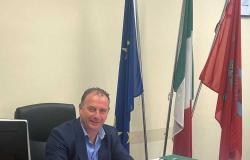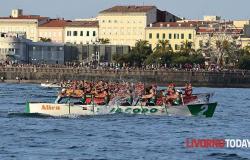The Europe of the future is, first of all, a question of women. The number one candidate for the presidency of the Commission is, as you know, German Ursula von der Leyen, the face chosen by popular Europeans to succeed herself. Von der Leyen, in order to be elected, in order to create a useful wall to defend Europe from the advance of Marine Le Pen’s party (Rassemblement national) and from the advance of the party chaired by Alice Weidel (AfD, Weidel is the spokesperson federal, leads the party together with Tino Chrupalla) needs the votes of the parties led by two other women.
One of them, of course, is Giorgia Meloni, which with Fratelli d’Italia leads the European Ecr group. The other is Annalena Baerbock, leading face of the German Greens, led by Ricarda Lang (co-president together with Omid Nouripour), whose votes could be decisive in giving Ursula the possibility of having her back covered by possible snipers who are complicit in the secret vote that characterizes the session when the European Parliament will vote on the new President of the Commission, they could try to impale her. To discuss how to broaden the possible new Ursula coalition, the outgoing president will then have to involve in the negotiations the outgoing leader of the liberal group in the European Parliament, the Macronian Valerie Hayer, who has already said that Renew remains determined to maintain the “cordon sanitaire” towards the Ecr group (group led by Meloni) and also the leader of a party that will represent the largest number of deputies in the next Parliament among the ranks of the European socialists: Elly Schlein’s Democratic Party (21 MEPs, followed by the Spanish Socialist Party with 20), who will be the next head of delegation to the European Parliament in the S&D group.
In the female triangulations that will lead the way in the next European Parliament, the most important photograph, obviously, is the one put on the Economist’s cover page two weeks ago. In the middle, there is Meloni. On one side there is Ursula. On the other, there is Le Pen. At the center there is a reckless but interesting balance to study: understanding to what extent Meloni will be able to stay with one foot in both shoes by supporting the next president of the Commission and simultaneously trying to make his European group, ECR, grow as much as possible. perhaps opening the doors to the right who will not have a say in the important political choices of the new Europe (like Le Pen) and keeping the most extreme right (AfD) away from their own group to demonstrate that the real extremists (even those of Identity and democracy, the group where the League is located) are others and are not the parties found in Ecr.
It’s an interesting, if reckless, game plan, but it’s the game plan that will help drive the Europe of the future. According to what appears to Il Foglio, from government sources, Giorgia Meloni’s choice to support Ursula’s candidacy is not linked to the issue of “if” but is only linked to the issue of “how”. Meloni is, fortunately, intent on bringing her party closer to the next majority that should be born around Ursula and is also intent on challenging her junior junior partner, the League, which has done its entire electoral campaign against Ursula (even covering some regions with violent posters against the outgoing president of the Commission). Let’s say fortunately because the inevitable choice that Meloni will make brings with it consequences that the prime minister will have to manage in a perhaps different way compared to some of the turning points implemented in recent months. Voting in favor of a President of the Commission together with the enemies of the past, including the socialists, including the liberals, including the Macronians, is not a choice that can be hidden but it is a choice that must be explained, motivated and even claimed and which could represent a further step in a progressive approach of melonism, so to speak, towards the pro-European mainstream. Meloni would do it in her own way, with one foot towards Ursula (and even Elly) and another towards Marine, but always distant from the AfD of Alice & Co. But doing so would project her into a new season, of growth, of responsibility, of anti-populism and anti-Trumpism.
It is a theme that concerns positioning, power, the possibility of having access to the control room. But also a theme that concerns the ability to have an impact in the matches that count. One of these is, obviously, what Italy could get in exchange, once it has done what even the stones know: the birth of the von der Meloni government. And if the negotiation goes through, when it will, Meloni will have three paths in front of him. The first corresponds to the big spoils: asking for the European commissioner for the Internal Market and Services for Italy, which currently also includes Defence. The second, minimal path is to settle for Agriculture, as the Polish PiS did in 2019 when as members of the ECR they voted independently for Ursula, which is indeed the main expenditure item of the European budget but which is also an expenditure item already allocated for some time and on which the margins for intervention would be minimal. The third path is to focus on the rise in Europe of a trusted Melonian, such as Raffaele Fitto, who would be welcomed with open arms in Brussels and who could have some chance of being simultaneously vice-president of the European Commission (there are usually eleven) and commissioner responsible for the cohesion funds. Von der Meloni government: why not?





